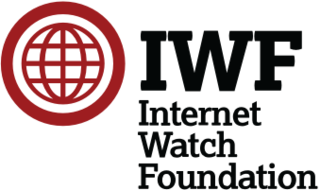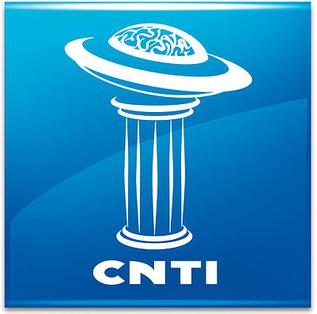The Cyprus Safer Internet Hotline is a service provided by the Cyprus Safer Internet Center project, coordinated by the Cyprus Neuroscience and Technology Institute (CNTI). The Hotline promotes the safe use of the Internet in Cyprus. It serves the needs of all people that live on the island but also abroad and addresses issues of child pornography, child erotica, child nudity, child grooming activities, child trafficking, child sex tourism, but also racism (currently on the rise in Cyprus), gender discrimination and inappropriate use of peoples’ images.
The Hotline provides assistance to the Cyber Crime unit of the Cyprus Police by filtering reports to determine which reports concern content that is probably illegal and is also located in Cyprus or has a Cypriot dimension. This assists the Police to dedicate their specialist resources to pursuing investigations within their jurisdiction by not having to deal with the majority of reports that do not contain illegal content or relate to material held in other jurisdictions.
The Hotline is a member of the INHOPE International Association of Internet Hotlines, founded in 1999 under the EC Safer Internet Action Plan. INHOPE facilitates and co-ordinates the work of hotlines internationally in responding to illegal use and content on the Internet. It facilitates good working relationships between hotlines and the exchange of reports by ensuring trust built on a rigorous hotline approval process. When illegal content which is not hosted in Cyprus is reported to SafenetCY the report is forwarded via INHOPE to the hotline that operates in the hosting country. If there is no INHOPE hotline in operation in the hosting country, the report is forwarded to the Cyprus Police which can decide based on the nature of the content to pursue an investigation in liaison with Interpol.
The Australian Communications and Media Authority (ACMA) is an Australian government statutory authority within the Communications portfolio. ACMA was formed on 1 July 2005 with the merger of the Australian Broadcasting Authority and the Australian Communications Authority.
The Australian High Tech Crime Centre (AHTCC) are hosted by the Australian Federal Police (AFP) at their headquarters in Canberra. Under the auspices of the AFP, the AHTCC is party to the formal Joint Operating Arrangement established between the AFP, the Australian Security Intelligence Organisation and the Computer Network Vulnerability Team of the Australian Signals Directorate.
SaferNet is a Brazilian non-governmental organization that combats Internet crime in partnership with the Federal Public Ministry. It facilitates anonymous reporting and provides information and training about Internet safety and security. Safernet operates in three strategic arms simultaneously: the National Center for the Denouncement of Cyber Crimes (hotline), the National Guidance Channel on Internet Security and Brazil helpline, and the actions of Education in digital citizenship.

Internet police is a generic term for police and government agencies, departments and other organizations in charge of policing the Internet in a number of countries. The major purposes of Internet police, depending on the state, are fighting cybercrime, as well as censorship and propaganda.
Hotline.ie is recognised as the established illegal internet content reporting service in Ireland, especially for reporting child sexual abuse images. The service provides a secure and confidential environment where the public can anonymously report material they suspect to be illegal which they may encounter when using the Internet. The reports can be made using the secure https section within the website. Alternatively, reports can be made by email or by phone.

Cyberethics is "a branch of ethics concerned with behavior in an online environment". In another definition, it is the "exploration of the entire range of ethical and moral issues that arise in cyberspace" while cyberspace is understood to be "the electronic worlds made visible by the Internet." For years, various governments have enacted regulations while organizations have defined policies about cyberethics.
Information technology law, also known as information, communication and technology law or cyberlaw, concerns the juridical regulation of information technology, its possibilities and the consequences of its use, including computing, software coding, artificial intelligence, the internet and virtual worlds. The ICT field of law comprises elements of various branches of law, originating under various acts or statutes of parliaments, the common and continental law and international law. Some important areas it covers are information and data, communication, and information technology, both software and hardware and technical communications technology, including coding and protocols.

The Internet Watch Foundation (IWF) is a global registered charity based in Cambridge, England. It states that its remit is "to minimise the availability of online sexual abuse content, specifically child sexual abuse images and videos hosted anywhere in the world and non-photographic child sexual abuse images hosted in the UK." Content inciting racial hatred was removed from the IWF's remit after a police website was set up for the purpose in April 2011. The IWF used to also take reports of criminally obscene adult content hosted in the UK. This was removed from the IWF's remit in 2017. As part of its function, the IWF says that it will "supply partners with an accurate and current URL list to enable blocking of child sexual abuse content". It has "an excellent and responsive national Hotline reporting service" for receiving reports from the public. In addition to receiving referrals from the public, its agents also proactively search the open web and deep web to identify child sexual abuse images and videos. It can then ask service providers to take down the websites containing the images or to block them if they fall outside UK jurisdiction.
The Cospol Internet Related Child Abusive Material Project (CIRCAMP) is a Comprehensive Operational Strategic Planning for the Police (COSPOL) project aimed at combating borderless and multinational crime in Europe. COSPOL is initiated by the European Police Chiefs Task Force (EPCTF), a council of the national heads of police in Europe.
Insafe is a European network of Awareness Centres promoting safer and better usage of internet. It is co-funded by the Safer Internet Plus Programme.

The Cyprus Safer Internet Helpline is a service provided by the Cyprus Safer Internet Center project, coordinated by the Cyprus Neuroscience and Technology Institute (CNTI). The Helpline ensures that not only children and adolescents but also adults have the opportunity to converse with experts in case they experience something negative on the Internet. Educated psychologists provide support and essential advice so that the crisis is overcome and the situation is confronted. Members of the public can reach the helpline at the number 7000 0 116. The communication is completely confidential and anonymous.

Childnet International is a registered UK charity that aims to make the internet a safe place for children and young people.
There is no commonly agreed single definition of “cybercrime”. It refers to illegal internet-mediated activities that often take place in global electronic networks. Cybercrime is "international" or "transnational" – there are ‘no cyber-borders between countries'. International cybercrimes often challenge the effectiveness of domestic and international law, and law enforcement. Because existing laws in many countries are not tailored to deal with cybercrime, criminals increasingly conduct crimes on the Internet in order to take advantages of the less severe punishments or difficulties of being traced.

The Cyprus Neuroscience and Technology Institute (CNTI) is a non-profit, non-Governmental independent organization active in programs with future orientation in areas related to human brain-modern technology-social transformation and the repercussions of relevant research for humanity.

Future Worlds Center (FWC) is a non-profit, non-Governmental independent organization active in programs with future orientation in areas related to positive social change, social entrepreneurship and transformation.
The Clean IT Project is an online project initiated by the European Union, aiming to reduce or discourage online terrorism and further illegal activities via the internet. They aim to create a document that commits the internet industry to help governments discover content that incites acts of terrorism. The main facilitators that undertook this project were the Netherlands, Germany, United Kingdom, Belgium, and Spain. There are many more supporting EU members such as Hungary, Romania, and recently, Italy, but the main countries that have started the project are the 5 listed above.

MediaSmarts is a Canadian non-profit organization and registered charity based in Ottawa, Ontario, that focuses on digital and media literacy programs and resources. In particular, the organization promotes critical thinking via educational resources and analyzes the content of various types of mass media.
The Cyber Crime Unit of the Hellenic Police, for which legislative responsibility remains with the Ministry of Citizen Protection, was officially founded in 2004 with Greek Presidential Decree 100/2004 Government Gazette 69/Α/3-3-2004. In 2011 with Presidential Decree 9/2011 Government Gazette 24/Α/21-2-2011 was the establishment of the Authority of Financial Police and Cyber Crime Subdivision, of Police Directorate level, commenced operation in August 2011 comprises the Financial Police Subdivision and the Cyber Crime Subdivision. It was reformed in 2014 with Article 17 of Section 2 of Law 4249/2014 Government Gazette 73/Α/24-3-2014 in which renamed Cyber Crime Division, including the foundation and structure of Cyber Crime Subdivision of Northern Greece in Thessaloniki. Although it is still continues to be commonly known to as Cyber Crime Unit or Cyber Crime Center. The legislation for the Cyber Crime Division has amended with the Article 31 of the Presidential Decree 82/2020 Government Gazette 183/A/23-9-2020.
Cybersex trafficking, live streaming sexual abuse, webcam sex tourism/abuse or ICTs -facilitated sexual exploitation is a cybercrime involving sex trafficking and the live streaming of coerced sexual acts and/or rape on webcam.








